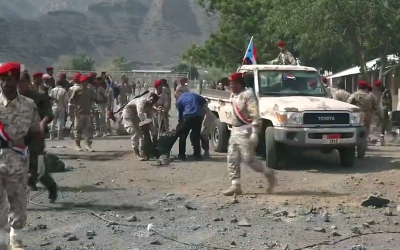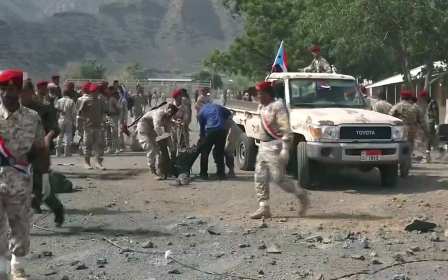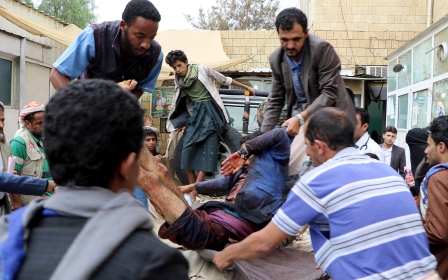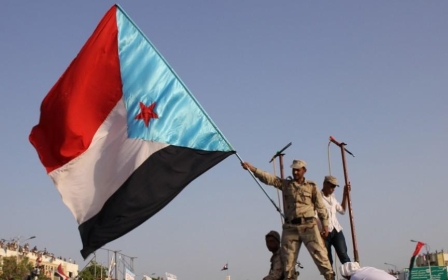Al-Qaeda attack on army base kills 19 soldiers in Yemen: Security officials
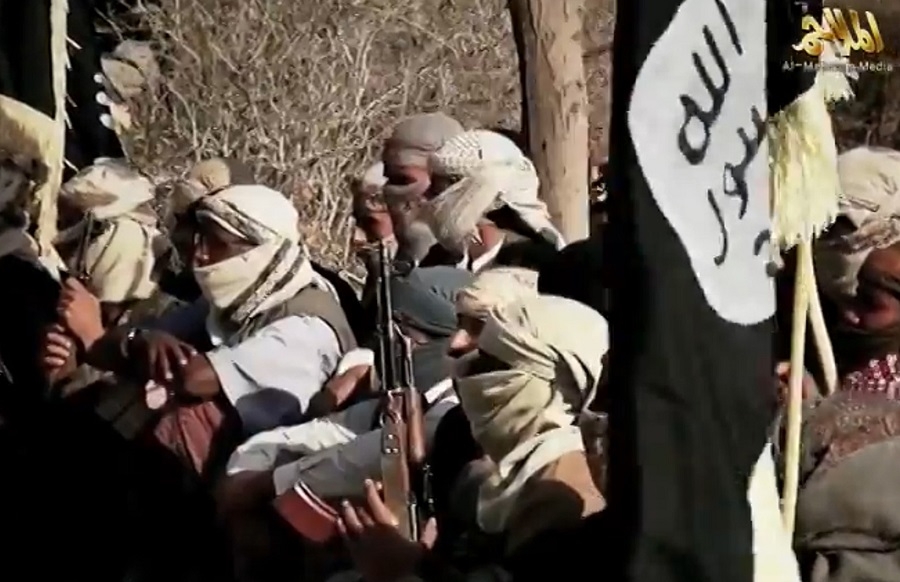
Al-Qaeda gunmen killed 19 soldiers in an attack on an army base in southern Yemen on Friday, security officials said, a day after deadly assaults by Houthi rebels and a suicide bomber.
The attackers stormed al-Mahfad base in Abyan province and remained inside for several hours before military reinforcements came, three security officials told the AFP news agency, adding that the soldiers were killed in the subsequent clashes.
New MEE newsletter: Jerusalem Dispatch
Sign up to get the latest insights and analysis on Israel-Palestine, alongside Turkey Unpacked and other MEE newsletters
"The al-Qaeda gunmen took advantage of what happened [on Thursday] in Aden and launched an assault on al-Mahfad base and clashed with soldiers," a government security official said.
"Military reinforcements were sent... and the gunmen were killed while others were driven out with air support from the [Saudi-led] coalition, in an operation that lasted hours.
"At least 19 soldiers were killed and others wounded," the official added.
The other two officials confirmed both the details and the death toll.
Security analyst Aleksandar Mitreski said the attacks "seem opportunistic".
"Al-Qaeda has neither the capability nor the strategic appetite to open a new front in south Yemen," Matreski told AFP.
"We may see other sporadic attacks in the future motivated by Al-Qaeda's desire to remain a relevant actor in the Yemeni conflict."
Ballistic missile
On Thursday, separate attacks by Houthi rebels and a suicide bomber hit security forces in Yemen's second city of Aden, killing at least 49 people, many of them newly trained security forces, officials said.
The first attack was a car bombing on a police station that killed 13 police officers and wounded several others, a security source said.
Islamic State (IS) said it was responsible for the suicide bombing on the police station, in a statement on the Telegram messaging app.
The second attack was carried out by the Houthis, who said they launched a drone and a ballistic missile at a military training camp west of Aden.
The aerial attack hit as senior commanders were overseeing a passing out parade for newly graduated cadets at al-Jala Camp, 20km from the centre of Aden.
A Houthi rebel spokesman told AFP that Thursday's attack was an "intelligence operation" in which "a new kind of missile that we have not unveiled was used as well as a drone that provided support in a big way".
Iran blamed
The Yemen-based al-Qaeda in the Arabian Peninsula (AQAP), IS and other armed groups have flourished in the chaos of the civil war between the government and the Houthis.
The United States considers AQAP the network's most dangerous branch and has waged a long-running drone war against its leaders.
The Yemeni government said on Thursday the "source and purpose [of the attacks] were the same".
"The two attacks prove the Houthi militia rebels and other terrorist groups are sharing roles and complementing each other in a war against the Yemeni people," a statement said.
Yemen's Prime Minister Maeen Abdulmalik Saeed and Saudi Arabia's envoy to Yemen, in separate tweets, accused Iran of being behind the attacks.
The Saudi envoy, Mohammed bin Saeed al-Jabir, said the attacks indicate that Iran "shares common goals with fellow terrorists such as Daesh (IS) and al-Qaeda".
Iran, which has been accused of supporting the Houthis, denies having any involvement in Yemen.
UN appeal
Aden is controlled by forces loyal to the Yemeni government and its supporters in a Saudi-led military coalition, which has been fighting the Houthis since 2015.
In recent months, the rebels have hit back with missile and drone attacks targeting neighbouring Saudi Arabia.
Repeated UN peace efforts, including an accord reached in Sweden in December, have failed to end the fighting.
The conflict has killed and wounded tens of thousands of people and resulted in the world's worst humanitarian crisis, according to the UN.
UN envoy Martin Griffiths voiced concern on Thursday about the latest escalation.
"I call on parties to honour their commitment to peace and put more efforts towards a political solution to the conflict," he tweeted.
Middle East Eye delivers independent and unrivalled coverage and analysis of the Middle East, North Africa and beyond. To learn more about republishing this content and the associated fees, please fill out this form. More about MEE can be found here.


